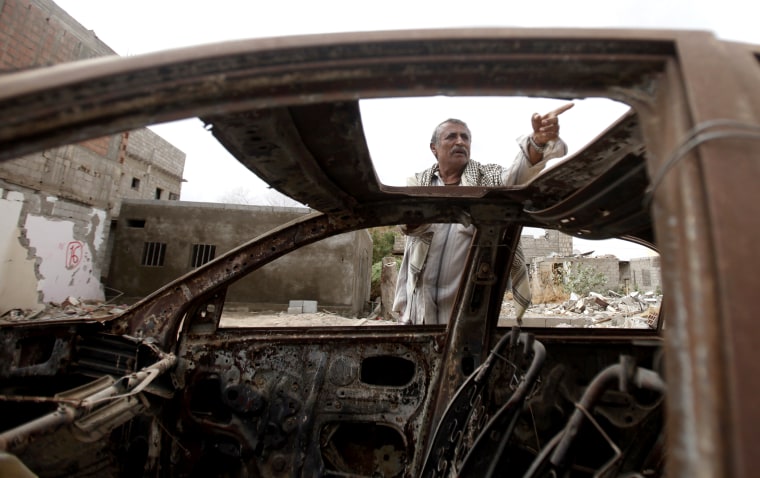The United States is facing increasingly harsh criticism over its use of lethal drone strikes to target suspected terrorists. American drone strikes in Pakistan and Yemen may amount to war crimes, according to a pair of reports released by international human rights groups Tuesday.
The Obama administration has always maintained that its lethal operations are targeted at terrorists and "proportionate," that is, designed to avoid civilian casualties. "Under domestic law, and international law, the United States is at war with al Qaeda, the Taliban, and their associated forces," President Barack Obama said in a speech at National Defense University in May. Nevertheless, the president said, the U.S. only acts against those that "pose a continuing and imminent threat to the American people" and that "before any strike is taken, there must be near-certainty that no civilians will be killed or injured--the highest standard we can set."
Both reports say Obama isn't following his own standard, accusing the United States of deliberately violating the laws of war. Examining nine drone strikes in Pakistan, the Amnesty International report concludes that the attacks killed large numbers of innocent civilians, and accuses the U.S. of targeting rescuers who arrive in the aftermath of the strikes to aid the wounded. A report from Human Rights Watch states that the majority of people killed by six drone strikes in Yemen were civilians (57 out of the 82 killed).
The reports describe civilians in both countries as being pinned between two equally frightening sources of violence: The extremist groups the U.S. is targeting and the lethal methods the US uses to target them. In at least one case where Amnesty International accuses the U.S. of deliberately targeting rescuers, Abu Yahya al-Libi, a high ranking member of al Qaeda, was killed. Amnesty International argues that al-Libi was among civilians and "overseeing" rescue efforts, and therefore shouldn't have been targeted. In another case, one of those killed was a 68-year old grandmother with no connection to terror groups.
The groups' findings that the United States has killed more civilians than it has admitted are bolstered by a UN report obtained by NBC News last week that stated U.S. drone strikes had killed as many as 400 civilians in Pakistan and almost 60 in Yemen. These reports clash with the U.S. government's own assessment of the strikes. Officials have maintained that civilian casualties from drone strikes are minimal, even in the face of multiple third-party evaluations that state otherwise. While the majority of those killed in the six drone strikes examined by Human Rights Watch were civilians, the report states that a majority of the almost 500 killed in drone attacks since 2002 were "combatants."
Both groups are demanding that the Obama administration investigate allegations of civilians deaths, release more information about the legal basis for drone strikes on suspected terrorists, provide restitution to those unjustly harmed and reveal the identities of those who lost their lives in the attacks.
During the White House press briefing Tuesday, Press Secretary Jay Carney insisted that the U.S. complies with international law when it acts with lethal force, though he acknowledged that civilians had been killed in U.S. drone attacks. "It is a hard fact that U.S. strikes have resulted in civilian casualties, a risk that exists in every war," Carney said, citing the president's speech in May. "Before we take any counterterrorism strike outside areas of active hostilities, there must be near-certainty that no civilians will be killed or injured, and that is the highest standard we can set."
